Opportunities For Researchers
Call for Research Proposals
IRDAI invites proposals, under Research Grant Scheme, for research work in the areas related to policyholder’s protection, consumer education and promoting the orderly growth of the insurance industry. Please visit IRDAl’s website
www.irdai.gov.in or IRDAl’s Consumer Education Website www.policyholder.gov.in for the details of the scheme.
Interested researchers may submit their proposals to Smt. KGPL Rama Devi, General Manager (Communications Wing), 1st Floor, IRDAI, Sy. No. 115/1, Financial District, Nanakramguda, Gachibowli, Hyderabad, Telangana 500032, on or before 5 pm,31.08.2018.
***
Call for Research Proposals
Call for research proposals for funding under the Research Component of the Central plan Scheme (CDM) of Ministry of Corporate Affairs (MCA) on the following illustrative themes from individuals/institutions:
a) Performance of One Person Company (OPC)
b) Effectiveness of important provisions of Companies Act, 2013 such as companies incorporated under Section 8 of the Act (Section 25 of Companies Act, 1956)
d) Effectiveness of Investor protection and Investor Education
e) Performance of Corporates (across states, sector and size etc.)
f) Effectiveness of Competition Law and practice
g) Corporate Debt structure and leveraging
h) Analysis of utilization of funds mobilized by Corporates through IPOs etc.
i) Ease of Doing Business: Sub-indices within the ease of doing business index which directly pertains to corporate sector i.e. (i) Starting a business, (ii) protecting minority investors and (iii) insolvency resolution.
j) Issues relating to emergence of Producer Companies in India.
Terms and Conditions: The terms and conditions for funding the research proposals will be according to the MCA Guidelines No. 2/1/CDMPS/R&A dated 17/1/2018. The guidelines are placed at http://mca.gov.in/Ministry/pdf/CDMNoticeGuidelines _10042018.pdf
Receipt of applications: The research proposals shall be posted/e-mailed to the following in the prescribed format: Shri P.C. Guravaiah, Joint Director, Ministry of Corporate Affairs, R & A Division, 8th Floor, ‘B’ Wing, Lok Nayak Bhawan, Khan Market, New Delhi-l 10003,
email: cdm.research@mca.gov.in, contact no: 011- 24698973
***
Sanction of IMPRINT-II Initiative.
Government of India
Ministry of Human Resource Development
Department of Higher Education
Technical Section-I
Shastri Bhawan, New Delhi
Dated: the 12th April, 2018
To,
(1) The Directors,
All Centrally Funded Technical Institutions (CFTIs)
(2) The Vice Chancellors
All Central Universities
Subject: Sanction of IMPRINT-II Initiative.
Sir,
I am directed to convey approval of the Government for implementation of IMPRINT-II with a view to address and provide solutions to the major engineering challenges by translating knowledge into viable technology (products or processes) in (10) selected technology domains, viz. (1) Healthcare, (2) Encrgy, (3) Sustainable Habitat, (4) Nanotechnology Hardware (5) Water Reources and River Systems (6) Advanced Materials, (7) Information and Communication Technology, (8) Manufacturing, (9) Security and Defense, and (10) Environmental Science and Climate Change.
2. IMPRINT-II will be funded by a corpus jointly set up by the Ministry of Human Resource Development (MHRD) and the Department of Science & Technology (DST) as well as contribution from various participating Ministries.
The broad objectives of scheme arc as under:-
(i) The major translatory intent of IMPRINT-II is to ensure that the scheme leads to development of product or prototype ready for pilot scale demonstration/deployment. IMPRINT-II shall distinguish from other usual R&D projects which lead only to publications/ patents.
(ii) Develop products/processes and viable technologies for addressing the identified challenges in the different domains.
(iii) Formulate and develop focused translational projects against identified technology thrust areas by various stakeholder ministries.
(iv) Evolve new technology transfer models for enabling technology diffusion to industry and stakeholders.
(v) Continuously monitor and refine the challenges and gaps in the various technology domains and map the same against the needs and strengths of the stakeholder ministries vis-a-vis academic and R&D institutions.
3. The detailed guidelines of IMPRINT-II are as under:
(i) Eligibility: The Scheme is open to all Centrally Funded Technical Institutes (CFT) and Central Universities (CUs) as Principal
Investigators (PIs), while any other institute/ university/industry) organization, publicly or privately funded, may participate as Co-PI.
The IMPRINT-II will encourage joint proposals by the Institutes/Universities, R&D wings of Ministries to ensure enhanced synergy between agencies and Institutes/Universities.
(ii) Submission of proposals: The prospective Principal Investigators (PIs) may submit preliminary project proposals in the prescribed formal within the given time schedule, as indicated on the IMPRINT Portal: www.imprint.in. The following projects will be given priority:-
a. Projects which address thrust Ministries/Departments, and fall IMPRINT.areas identified by the in the (10) domains of Projects which provide for translational research leading to viable technology, prototype or working model development. Projects with active collaboration with and contribution from industry / stakeholder / startup, except those having a conflict of interest.
1.1. Administrative structure:
Scicnce & Engineering Research Board (SERB) under DST will create a separate IMPRINT-SERB Vertical under its overall setup, chaired by thc Secretary, SERB and the National Coordinator of IMPRINT. The Vertical will be responsible for all administrative matters such as call of proposals, preparing the agenda for meetings of Programme Advisory Committees (PACs) and Apex Committee, tracking fund-flow, fund management, UCs and SEs from PI institutions, national level monitoring of the scheme and liaisoning with participating Ministries etc.
b. All projects received will be uploaded on the IMPRINT portal, to be administered by IMPRINT-SERB Vertical and accessible to
all stakeholders (through login ID and password)
c. National Coordinator- National Coordinator of IMPRINT-II will liaise with each institution, participating Ministry/Department or any other organisation, both in public and private sector and will organise the initiative at the field level.
IV. Scrutiny and selection:
a. Blind reviews: IMPRINT-SERRB Vertical will create an Expert Pool comprising experts including those from INAE for vetting/ reviewing the proposals. This would be the first point of appraisal.
b. Programme Advisory Committees (PACs): The second point of evaluation will be done by the 10 Programme Advisory Committees (PACs) one for each domain with Nodal Officers nominated by participating Ministries as well as experts from premier institutions as Members. The PACs would be constituted by the IMPRINT-SERB Vertical, which will scrutinize the projects and recommend them to the Apex Committee for approval.
c. Apex Committee- The projects recommended by the PACs will be submitted for final approval of the Apex Committee, co- chaired by Secretary (HE) and Secretary, DST. The Apex Committee will also include one Expert from each domain, Nodal Officers of the participating Ministries, Secretary, SERB and the National Coordinator as Members. Apex Committee will be the highest authority of IMPRINT to approve the projects.The Chairpersons of Apex Committee would be empowered to change the scope, funding pattern, duration, foreclosure, extension, cost escalation of a project [or justifiable reasons, rules/ guidelines and any other related matter, without having the full Apex Committee meeting in session.
Funding: IMPRINT-II will be funded through a Corpus jointly created by MHRD and DST, each contributing an equal share. All Government Ministries/ Departments arc welcome to contribute to the Corpus for the projects relevant to them as per their thrust areas identified, subject to the following,
(a) The average cost of each proposal shall be RS.2 crore with a duration of 3 years.
(b) The competent authority has already approved an outlay of Rs.425 crore for the scheme as MHRD share, which includes a
committed cost of Rs.38.65 crore for IMPRINT-I and Rs.51.35 crore for UAY. Thus the approved outlays from MHRD specifically for IMPRINT-II projects will be Rs.335 crore with an equal share from DST. This will create a dedicated corpus of Rs.670 crore for IMPRINT-II.
(c) There will be two calls of proposals, one each 111 2018-19 and 2019-20 with the following approved outlays:
Funding 2018-19 2019-20 Total
MHRD 107.00 228.00 335.00
DST 107.00 228.00 335.00
Gr.Toatal 214.00 456.00 670.00
(d) The projects taken up under first Call in 2018-19 will run for a period of three years till 2020-21 and those taken up in 2019- 20 will run till 2021-22. For each call of proposals, the releases out of approved outlays will spread over three years, generally in the ratio of 50:25:25 of the project cost.
(e) The contributions received from the industry and the participating Ministries will be added to the Corpus and will be used as additionality in a particular project or to take up more projects.
(f) The participating Ministries/Departments/Industry will continue to fund the remaining cost of IMPRINT-I and UAY projects, as accepted by them earlier.
(g) There shall be no further call of proposals under IMPRINT·] and UAY.
(h) The Institutional charges shall bc as per standard norms of DST.
vi. Standard Operating Procedure: All projects are to be executed as per norms approved by the Board of Governors (BoG), Governing Council (GC) or any other competent authority of each participating Institute in terms of project execution, procurement of equipment, consumablcs, contract of project staff, contingency, travel etc.
b) Downstream disbursal of funds to partner institutions shall be done using the EAT module of PFMS to ensure that there is no parking of funds.
c) The funds will be used primarily for project staff salaries, consumables, contingency expenditure, travel, experiments /Trials and purchase of small instruments, components and devices. However, no funds will be used for construction of laboratory spaces or purchase of major equipment.
d) The partner Ministries may help PIs of IMPRINT-II projects to conduct experiments and trials using the equipment and infrastructure available with them or their agencies.
e) It ‘will be the responsibility” of the PI institution to secure Utilization Certificate (UC), Statement of Expenditure (SE) and
send the same in the prescribed format, as stipulated under GFR to the IMPRINT-SERB Vertical.
f) The PI institution may consider signing MoU with industry partners, wherever applicable, in order to streamline execution
of the project. A copy of the MoU is to. be sent to the IMPRINT- SERB Vertical for records. This MoU may, inter-alia, cover the following aspects
- Fund sharing
- IPR sharing
- Use of capital resources
- Use of human resources
- Policy for partners from non-CFTI or industry as practiced in IITs may be followed
- Extant Guidelines for Ethics issues (including medical ethics) in IIT’s should be followed.
g) DST may bring all scientific Departments, which provide R&D grants, on board a common ‘National IP Policy for Research Grants’ as per global practices, which will ensure elimination of overlap in R&D grants, inventorization of IP, focus on commercialization etc.
The Intellectual Property generated under IMPRINT-II shall be jointly owned by the Institute/University and the funding partners. Projects in which multiple institutions are involved, IPR will be shared equally by all partners. The Ministry which funded the project will have the first right to use/ deploy / exploit the product arising out of the IP.
(vii) Monitoring: The monitoring of IMPRINT-II will be done in the following manner-
(a) The Program Advisory Committees (PACs) will monitor the scheme at the project level and the IMPRINT-SERB Vertical at the national level.
(b) For all the stakeholders to monitor progress of each project, a well designed knowledge portal will be created by IMPRINT· SERB Vertical, which shall be updated by the individual PIs on real-rime basis.
(c) A scientific output and outcome evaluation of IMPRINT will be done by a national institute of repute, which is not a
stakeholder, preferably by the end of 2019-20.
4. This issues in pursuance of the OM No.13(12)/PF-II/2016 dated 23.03.2018 of the Ministry of Finance, Department of Expenditure and with the approval of the competent authority in the Ministry of Human Resource Development.
For more details: Click here
***
IMPRINT-II- Call For Research Proposals
IMPRINT-II is being launched with a revised strategy for funding of the research projects through a joint corpus by Ministry of Human Resourse Development and the Department of Science & Technology. Each research project will have an average funding of Rs.2 crore for a duration of upto 3 years. The institutes may allow single or multiple partners from any other institute/ university/ industry/ organization, publicly or privately funded as Co-Pis. The detailed Information about the scope, mandate, eligibility, review/monitoring mechanism, and format/procedure/guideline for submission of preliminary and final project proposals and their implementation shall be available on the website.
The prospective Principal nvestigators (Pis) are to submit preliminary project proposals in a prescribed proforma on the web-portal www.imprint-2.in, which will be functional w.e.f. 23rd March, 2018.
The following projects will be given priority in evaluation:
a. Projects which address the thrust areas identified by the Ministries, which fall in the (10) domains of IMPRINT.
b. Projects which provide for translational research leading to viable technology, prototype or working model development.
c. Projects with active collaboration (and contribution) with an industry/stakeholder/ startup (However proposals which have a conflict of interest will be barred).
Deadline for on-line submission : April 10,2018.
For More info: http://www.imprint-2.in
***
National Human Rights Commission: Invitation for Expression of Interest for Undertaking Research Studies/Projects
National Human Rights Commission, a statutory body constituted under the Protection of Human Right (PHR) Act, 1993, invites Expression of Interest (EOI) from reputed research institutions, universities, NGOs for undertaking research studies/projects on the subjects/topics as proposed below.
1. Eligibility Criteria :-
The research grant would be made available to an institution belonging to any of the following categories, having adequate infrastructure, qualified human resource and trained manpower, is associated in any manner with the cause of protection and promotion of human rights with good track record, which has rich experience in carrying out research and which is not run for profit, shall be eligible to be considered for entrusting the research project, such as:
i) A research institution set up and fully funded by the Central Government/State Government/Public Sector Undertaking;
ii) An institution/organizati on/NGO registered under the Societies Registration Act, 1860 (Act XXI of 1860) or Indian Trust Act 1882 or any Public Trust Act.
iii) A registered institution exclusively devoting itself to the espousal of the cause of human rights;
iv) A UGC approved University (Preference will be given to NAAC accredited University).
2. Proposed Subjects/Topics of Research :-
a) Sexual harassment of women at the work place (both Private and Government Institutions)
b) An empirical research on the victim compensation schemes and rehabilitation of the victims in the Indian perspective.
c) An empirical research study to check the penetration/awareness about NHRC in the society and suggest measures to raise human rights awareness at the grass-root level.
d) Empirical study on the status of undertrial prisoners in the prisons with focus on their health, growing number of suicides and overstay/l ingering on in the prisons for longer duration even after expiry of sentence terms.
e) Empirical study of 4-5 States (covering Central/District Prisons) as to how the prisoners released after completion of their sentences have faired and re integrated in the society.
f) Trends and patterns of deaths in prisons and in police custody: an empirical research covering atleast 4 States having higher incidence of such deaths.
g) An Empirical study on Business and Human Rights including practices in select companies listed on the stock exchange.
h) Research on the issues concerning LGBTls.
i) Role, responsibility, challenges, threats and opportunities for effective functioning of HR Defenders at the grassroot level.
3. Procedure for Submission of the Project Proposal :-
Application along with a certificate of approval by the Head of Institution alongwith a detailed proposal indicating a brief outline of the project stating the objectives, methodology , stages of the project, proposed item-wise budget, number and previous experience of the proposed research staff, tenure of the project, etc. be sent to the Commission
4. Procedure for Selection of the Project Proposal :-
1. The project proposal submitted to the Commission will be scrutinized and, if need be, the Project Director may be asked to make a presentation before the Commission.
2. After the scrutiny of the project proposal, the Commission may call for any clarification or suggest modification therein.
3. The decision of the Commission to accept or reject the proposal would be final.
Eligible institutions/organizations may submit their proposal in the prescribed format (Annexed) to the Joint Secretary (T&R), NHRC, Manav Adhikar Bhawan, C-Block, GPO Complex, INA, New Delhi-110023 within 30 days of the date of publication of this Expression of Interest.
***
Information Systems Journal: Special Issue- Call for Papers
Topic: Digital Social Innovation.
Digital social innovation (DSI) involves the development and implementation of innovative products, services, processes, business models and other innovative activities, in which digital technology plays a central role, that seek to improve the wellbeing and agency of socially disadvantaged groups, or to address social problems related to marginality, inequality and social exclusion1. DSI enables businesses, non-government organizations (NGOs), government agencies and social entrepreneurs to leverage digital technologies to generate positive social impacts. These entities can collaborate using digital technologies to co-create knowledge and solutions for a wide range of social needs of disadvantaged, socially excluded, and marginalized groups, and at a scale that was unimaginable before the rise of Internet-enabled technologies.
Timeline
Initial submission of extended abstract : August 31, 2018
Paper development workshop at ANU : 29-30 November, 2018
Submission of completed papers : February 28, 2019
First round of reviews due : June 30, 2019
Revision due : September, 2019
Completion of second round of reviews : December 2019
Final revisions due : February 28, 2020
Final decision : May 30, 2020
***
Proposals are invited to conduct a study on declining Sex Ratio at Birth in Nicobar District
of Andaman & Nicobar Islands
The Nicobar District in the UT of Andaman & Nicobar Islands was selected as multi-focused district for implementation of Beti Bachao Beti Padhao Scheme during the year 2015. The sex ratio at birth for Nicobar District has declined to 818 for 2016 from 1037 in 2013-14 (The total population of Nicobar is 36,842 as per 2011 census). This is a cause for concern and requires an in depth study.
The Ministry of Women and Child Development, Govt. of India was requested to depute experts for carrying out a study to identify the factors behind the declining Sex Ratio at Birth in Nicobar District. In pursuance to the same, it was decided to entrust a study to a reputed Institution and the Statistics Bureau, Minlstry of Women and Child Development, Govt. of India furnished a list of Institutes who could conduct this study.
Researchers are requested to convey their willingness along with time-lines and proposed methodology for this study.
Application Deadline: 31 st Oct. 2017.
NB:– Funding will be provided by Ministry as per its research guidelines which can be accessed from the Ministry’s website.
For more info
Ph. No. 09474241102/03192-233377
Mail ID : singhrashmi.ani@gmail.com.
Web: www.wcd.nic.in/schemes/grant-aid-research-publication-and-monitoring
***
IIBF invitation for Macro Research Proposal 2016-17
Indian Institute of Banking & Finance offers Macro Research opportunities to encourage researchers in the field of banking and finance. Under this programme, the Institute offers a research grant of Rs. 2,50,00/- and awards 2-3 projects each year.
Topics for Macro Research:
The Institute encourages empirical research in which the researchers can test their hypothesis through data (primary/secondary) from which lessons can be drawn for the industry (banking & finance) as a whole. In this regard, the Institute invites Macro Research Proposals for year 2016-17 on the following topics. (See important clause on copyrights below1)
1. Big Data Analytics: Role in designing financial products
2. Disruptive Technologies: Changing paradigm of banking
3. New Government Policies/Programmes & Financial Inclusion – Impact Study
4. Growth of NBFCs : Issues, Challenges & Opportunities
5. Outsourcing in banks – Scope & Impact
6. Stressed Account Management
7. Marketing of Financial Services
8. Financing of Infrastructure Projects: Trends, Policies & Challenges
Application Deadline: 31 January 2017
***
ANNOUNCEMENT OF PROGRAMMES OF
SHASTRI INDO-CANADIAN INSTITUTE (SICI) 2016-17
Shastri Indo-Canadian Institute with funding support from the Ministry of Human Resource Development, Govt of India has invited applications from SICI’s Member Institutions for the year 2016-17.
» Shastri Institutional Collaborative Research Grant (SICRG) 2016-17
» Shastri Mobility Programme (SMP) 2016-17
» Shastri Research Student Fellowship (SRSF) 2016-17
» Faculty-In-Residence Programme (FIR)/Global Initiative for Academic Network (GIAN) 2016-17 (FIR is open for non-members also)
Application Deadline: 25 November 2016
Email: siciapplications@sici.org.in
***
NSE – IGIDR Corporate Governance Research Initiative
Call for Research Proposals
The National Stock Exchange of India (NSE) and the Indira Gandhi Institute of Development Research (IGIDR) are collaborating to promote academic research on Corporate Governance in India. The Initiative invites academics and scholars working in the areas of economics, finance, law and management disciplines to submit research proposals that are relevant for understanding, designing and implementing best-practice corporate governance policies. Six projects in total will be selected by the Initiative and a token honorarium of USD 2000 will be paid per project.
Deadline for submitting research proposal: July 31, 2016.
TOPICS OF INTEREST (to the Initiative include but are not limited to:)
- Ownership and control structures, their evolution, minority shareholder rights,the role of large shareholders and institutional investors
- Governance issues in family firms/business groups including the role of internal markets, insider control, relational contracting and succession planning
- Board size, CEO duality, role of independent directors, Board assessment and term limits
- Gender and board diversity
- Auditor and audit committee independence
- Accounting and auditing standards, disclosure practices, transparency, and earnings management
- Related party transactions
- Role of proxy advisors in governance
- Governance of financial institutions and institutional investors
- Governance by financial institutions and institutional investors
- Corporate social responsibility and socially responsible investing
- Governance of public and private sector companies including listed and unlisted companies
- Executive compensation
- Mergers and acquisitions and corporate governance
- Corporate governance index
- Laws, regulations and enforcement
- The role of value, ethics, and trust in governance
Research proposals should be emailed in a single file in pdf format to:
nse-igidr-cg@igidr.ac.in.
To know more about the procedure of proposal submission, please visit:
http://www.epw.in/content/nse-%E2%80%93-igidr-corporate-governance-research-initiative?0=ip_login_no_cache%3D9d62e131c2dd36aeecdba015936a3641
***
NASI Scopus Young Scientist Awards 2016 – Call for entries
The National Academy of Sciences India (NASI) and Elsevier has invited entries for the NASI- Scopus Young Scientist Awards 2016. The awards will be given away in the following 9 areas of Science, Technology & Medicine.
| • Agriculture • Chemistry • Engineering • Medicine • Social Sciences |
• Biological sciences • Earth, Oceanographic & Environmental Studies • Mathematics • Physics |
Eligibility:
• An Indian citizen, residing and working in India
• Have completed at least PhD/MD or equivalent degree
• Must be born on or after January 1st, 1976.
For further information regarding the process, application format, and submission, please visit http://southasia.elsevier.com
***
2017-2018
Fulbright-Nehru, other Fulbright, and Fulbright-Kalam Climate Fellowship programs for Indian citizens
Not too far….July 15 is the application deadline for the Fulbright-Kalam Climate Fellowship, Fulbright-Nehru Postdoctoral Research Fellowships and Fulbright-Nehru Academic and Professional Excellence Fellowships.
Details about the fellowship programs, application procedure and guidelines, and the selection process are available on the USIEF website http://www.usief.org.in/Fellowships/Fellowships-for-Indian-Citizens.aspx .
|
sex ratio at birth for Nicobar District has declined |
1. Theprojectproposalsubmittedto theCommissionwillbescrutinizedand,ifneedbe,theProjectDirectormaybeaskedtomakeapresentationbeforetheCommission.
2. Afterthescrutinyoftheprojectproposal,theCommissionmaycallforanyclarificationorsuggestmodificationtherein.
3. ThedecisionoftheCommissiontoacceptorrejecttheproposalwouldbefinal.
Eligibleinstitutions/organizationsmaysubmittheirproposalintheprescribedformat(Annexed)totheJointSecretary(T&R),NHRC,ManavAdhikarBhawan,C-Block,GPOComplex,INA,NewDelhi-110023within30daysofthedateofpublicationofthisExpressionofInterest.
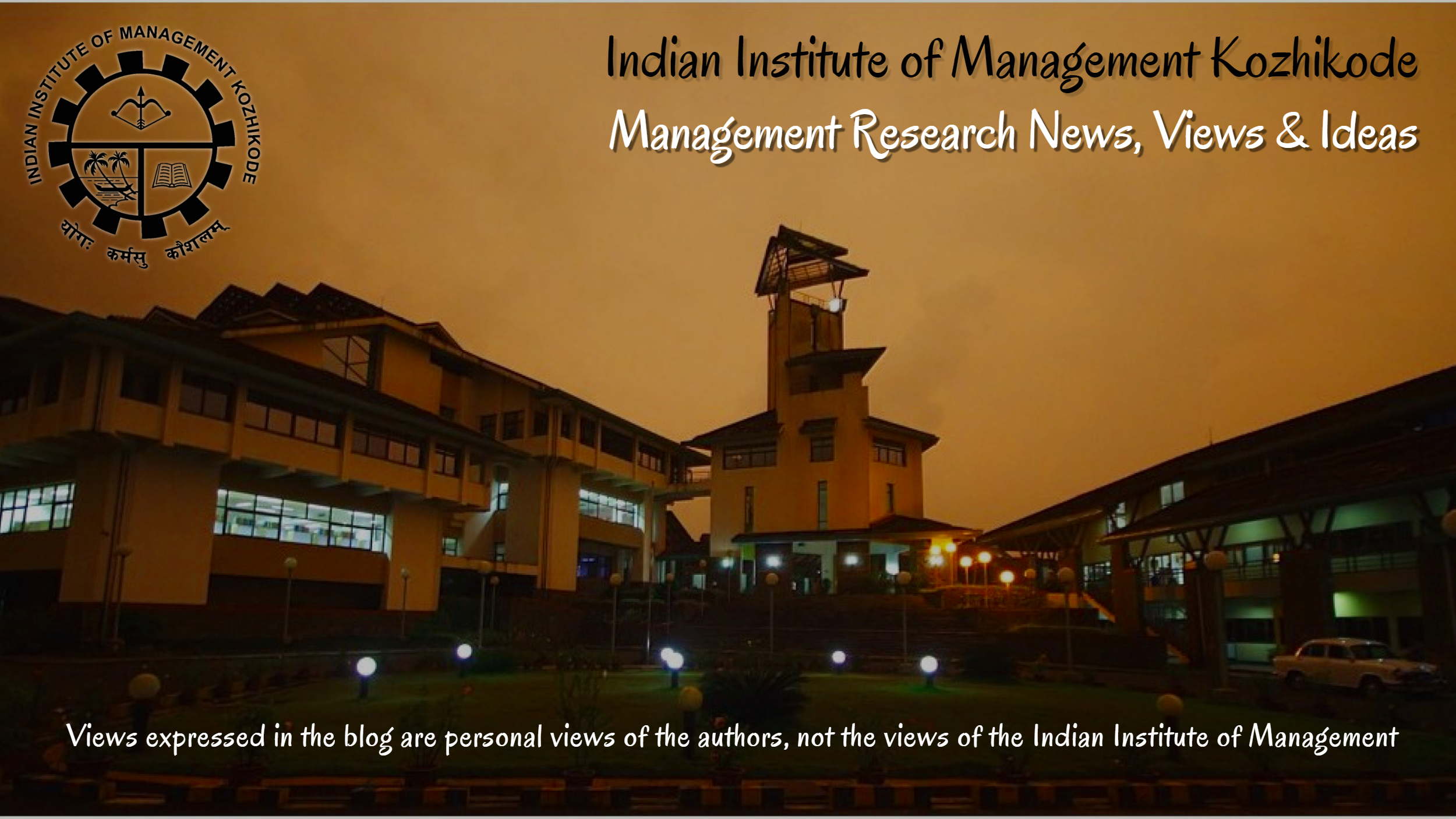

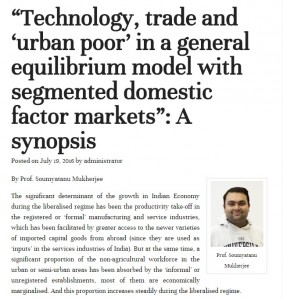


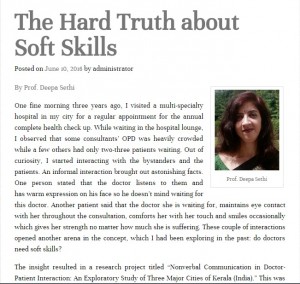
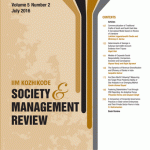
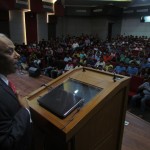
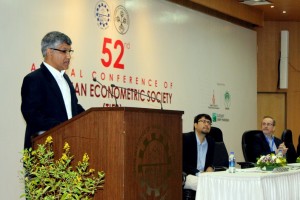
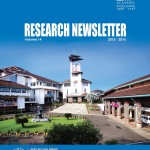
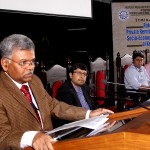





 Users Today : 213
Users Today : 213 Users Yesterday : 501
Users Yesterday : 501 This Month : 15695
This Month : 15695 This Year : 34358
This Year : 34358 Total Users : 592602
Total Users : 592602 Who's Online : 1
Who's Online : 1